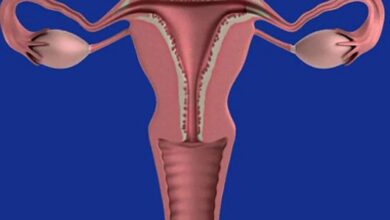Difference between AIDS and HIV Similarities and FAQs
AIDS and HIV
In this article we will provide you the Difference between AIDS and HIV Similarities and FAQs.
What does AIDS mean?
AIDSis the acronym for Acquired Immune Deficiency Syndrome. It is a disease caused by infection with the HIV virus (Human Immunodeficiency Virus). AIDS occurs when the immune system becomes weak and cannot defend the body against infections, cancers, and even other disorders. This happens because the virus destroys immune cells called CD4 lymphocytes, thus limiting the body’s quality of life. These patients are limited in their ability to fight pathogens. The most common symptoms include chronic fatigue, persistent cough, and unintentional weight loss; However, if adequate treatment is not received, these manifestations could progress to fatal complications. Fortunately, there are several therapeutic options available today to control the adverse effects of HIV and improve the patient’s quality of life.
What does HIV mean?
HIV is the acronym for Human Immunodeficiency Virus. It is a virus that attacks the human body’s immune system, causing immunodeficiency., and consequently, the appearance of opportunistic diseases. HIV is generally transmitted through sexual contact with an infected person, parenterally (intravenous injection), during pregnancy, or through transfusion of contaminated blood. This infection does not cure, but there are treatments to control the symptoms and prevent its spread among healthy people. Although there is no vaccine capable of completely eradicating it, there are several preventive strategies to avoid its contagion: using condoms when having sex; Get regular tests and avoid sharing syringes or other sharp objects common among drug addicts.
Similarities between AIDS and HIV
AIDS and HIV are terms that are closely related. They both refer to the same virus, the human immunodeficiency virus, or HIV. Acquired immunodeficiency syndrome (AIDS) is a disease caused by HIV, and results in significant impairment of the immune system. This can make those infected more susceptible to certain diseases. On the other hand, HIV is the underlying infection that causes AIDS; Not all people with HIV necessarily develop AIDS, but those with AIDS definitely have an advanced type of HIV infection. Although there are treatments for both problems, there are cases where there is no cure currently available for them.
Differences between AIDS and HIV
AIDS and HIV are related terms, but they mean different things. AIDS is the acronym for Acquired Immune Deficiency Syndrome, a very serious disease that causes the destruction of the human immune system. The main cause is the HIV virus or Human Immunodeficiency Virus; However, there are many other viral infections that can lead a person to develop AIDS. General symptoms of HIV include chronic fatigue, recurrent fever, and excessive night sweats; However, these same symptoms do not necessarily indicate the development of AIDS. Therefore, to confirm if an individual has the virus, specific serological tests are performed to detect it.
Frequent questions about AIDS and HIV
What causes AIDS?
AIDS (acquired immunodeficiency syndrome) is caused by the human immunodeficiency virus, also known as HIV. The virus slowly destroys the body’s defense systems and makes it more difficult to fight infections and diseases. It can be transmitted through unprotected sexual contact, transfusion of contaminated blood, or sharing drug syringes.
How long does a person with AIDS have to live?
There is no exact answer to this question. The length of life varies depending on the individual, and depends largely on the medical treatments received. Some people with AIDS can lead relatively normal lives if they receive appropriate treatment, but others may experience serious complications related to HIV infection.
What is AIDS and how is it transmitted and how is it prevented?
AIDS (Acquired Immune Deficiency Syndrome) is a disease caused by the Human Immunodeficiency Virus (HIV). HIV attacks the immune system, making it difficult for the body to fight infections and other diseases. AIDS is primarily transmitted through unprotected sexual contact with someone infected with the virus, sharing used intravenous drug needles, or contaminated blood transfusions. The only effective form of prevention is to avoid risky behaviors such as having unprotected sex with strangers and not sharing needles. There are also antiretroviral treatments available that can help reduce the chance of transmitting the virus if taken correctly.
Who created the AIDS virus?
There is not a single person who has claimed responsibility for the creation of the AIDS virus. HIV is a natural virus that has been around for a long time, and its exact origin remains a mystery.
What does having HIV cause?
HIV (human immunodeficiency virus) is a virus that is primarily transmitted through unprotected sexual contact, sharing contaminated needles, and transfusion with infected blood. If left untreated, HIV can severely damage the immune system and increase your risk of infectious diseases and other health problems.
What are the symptoms of HIV like?
HIV symptoms can vary from person to person and usually appear two to four weeks after exposure to the virus. Common early signs include high fever, chills, headache, and severe fatigue. Other symptoms may also include nausea, vomiting, persistent diarrhea, or muscle aches. Some people with HIV also experience lumps in the neck area and swollen lymph nodes (throat), as well as rashes and even blisters all over the body.
How long can a person live with HIV?
The length of life of a person with HIV depends largely on the treatment they receive and the care they provide. By following a comprehensive antiretroviral treatment (ART) program and adopting healthy habits, people with HIV can live as long as anyone else without the virus. However, if these steps are not followed, the life expectancy for someone with HIV can be much shorter.
What are the first symptoms of HIV in men?
Early symptoms of HIV in men may include fever, fatigue, sore throat, and swollen lymph nodes. Other early symptoms may also include skin rashes, persistent cough, persistent diarrhea, and excessive night sweats.




